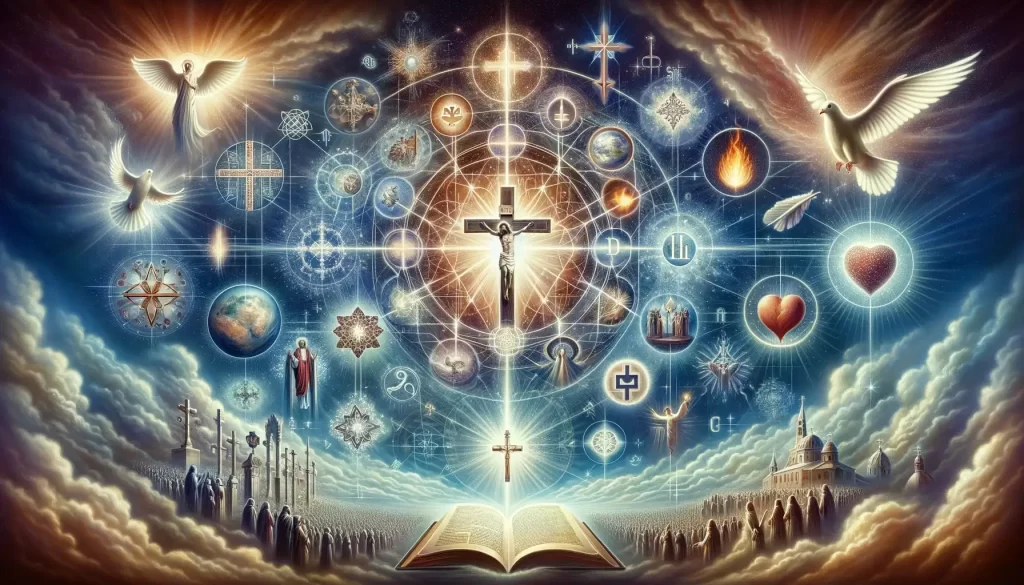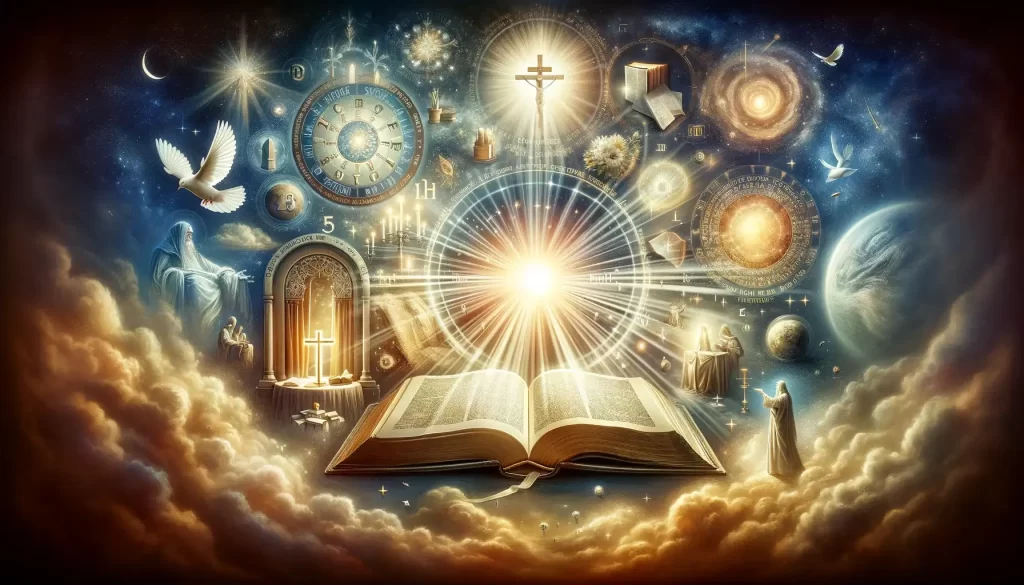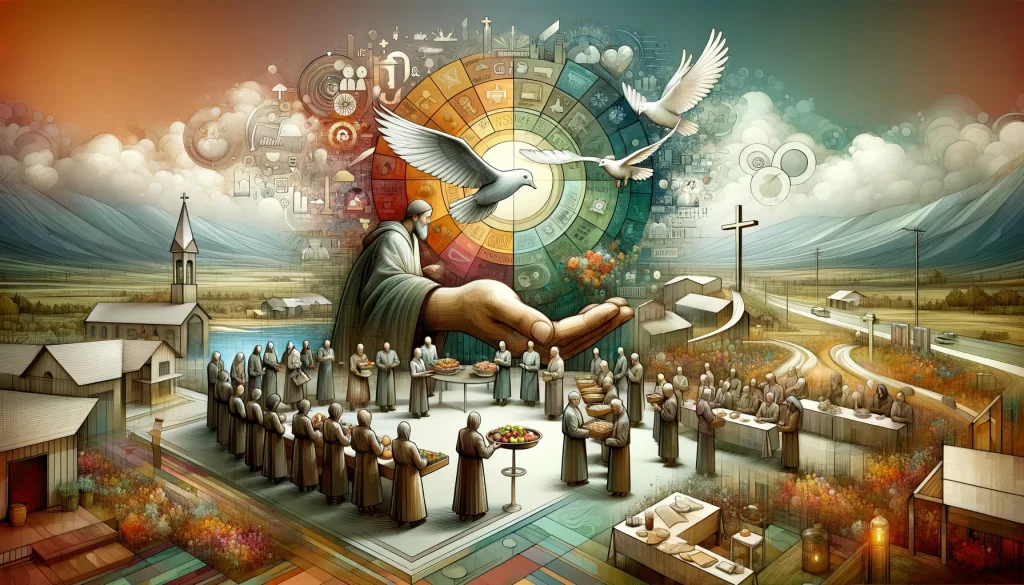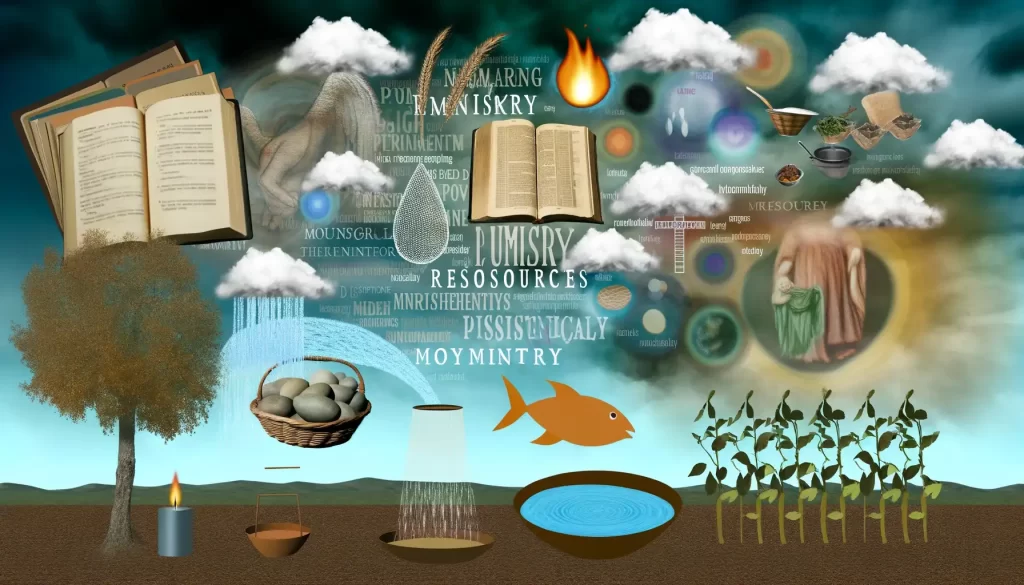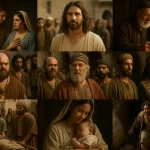People Mentioned in the Gospel of MarkAll the People Mentioned in the Gospel of Mark Name Description Reference Jesus Christ Proclaimed as the Son of God and central figure of the Gospel. Mark 1:1 John the Baptist Prophet who baptized Jesus and prepared His way. Mark 1:4 Herod Antipas Tetrarch who beheaded John the Baptist. Mark 6:14 Herodias Wife of Herod’s ... Read more Read More People Mentioned in the Gospel of MatthewThe Gospel of Matthew mentions over 70 individuals, including Jesus Christ, His genealogical ancestors like Abraham and David, His earthly parents Mary and Joseph, prophets such as Isaiah, apostles like Peter and James, and key political figures including Herod and Pontius Pilate. This complete list helps readers trace Jesus' lineage, understand His early life, and identify all those involved in His ministry, crucifixion, and resurrection. Read More Can Worry Make You Taller, or Live Longer? Matthew 6:27 ExplainedImagine standing before a mirror, fretting over your future, and suddenly gaining 18 inches in height. Absurd, right? Yet that is exactly the kind of imagery Jesus used in one of His most puzzling and provocative questions: “Which of you by taking thought can add one cubit unto his stature?” (Matthew 6:27, KJV). For centuries, ... Read more Read More Forgiveness Is Not Forgetting: It’s Choosing to See DifferentlyThis article draws on the study “The Emotional Impact of Forgiveness on Autobiographical Memories of Past Wrongdoings,” (Fernández-Miranda et al., 2025) published in the Journal of Experimental Psychology. Researchers conducted four online studies with nearly 1,500 adults who recalled personal offenses they had either forgiven or not. They measured both the vividness of these memories, ... Read more Read More Expecting Betrayal in Ministry: Learning from Judas’s RoleFacing Betrayal Among God’s People It can be difficult to understand how those who claim to be children of God sometimes betray, lie, steal, and sow discord in a fellowship of believers. We may serve side by side with someone for years, only to discover that they have harbored secret ambitions that run counter to ... Read more Read More How Bias Distorts Our Vision: A Pastoral Call to Clear SightBy Michael Mooney, Exec. Elder Through the Funhouse Mirror: When We Mistake Ourselves for the Standard We often walk through life as if holding a clear lens, assuming that we see people and situations as they truly are. In reality, we peer through a warped funhouse mirror of our own biases, unaware of how much ... Read more Read More Gnosticism in 1 John: Heresy, History, and Pastoral ResponseGnosticism isn’t just a second-century heresy—it is a recurring pattern of distortion. Its ideas have reemerged in many contemporary forms: spiritual elitism, body-soul dualism, and a rejection of biblical authority. For ministers, understanding how the Apostle John opposed this heresy is not only historically informative, but deeply relevant for safeguarding the church today. 1. Defining ... Read more Read More Why Pet Peeves Make Poor Pets: A Modern ParableBy Michael Mooney, Exec. Elder There was a man who discovered a strange creature. He kept it as a pet. Not knowing what to call it, he named it “Peeve”. The two became fond of each other, almost like the friendship of a trusted dog. He told Peeve stories, especially the ones where he was ... Read more Read More Tawhid in Islam: Meaning, Origins, and Christian PerspectiveDefinition and Origin Tawhid (توحيد) is the foundational concept in Islamic theology expressing the absolute oneness and uniqueness of God (Allah). The Arabic root word is waḥḥada (وَحَّدَ), meaning “to unify” or “to make one.” Tawhid, therefore, literally means “unification” or “asserting oneness.” It is derived from the verbal noun of wahhada, indicating a deliberate ... Read more Read More What Does Monotheistic Mean? Belief in One True GodTo be monotheistic is to believe in the existence of only one God. This belief sets the framework for some of the world’s most influential religions, including Christianity. But the term does more than label a belief—it defines a worldview, one rooted in exclusivity and relational covenant. The word “monotheism” comes from the Greek monos ... Read more Read More
|




